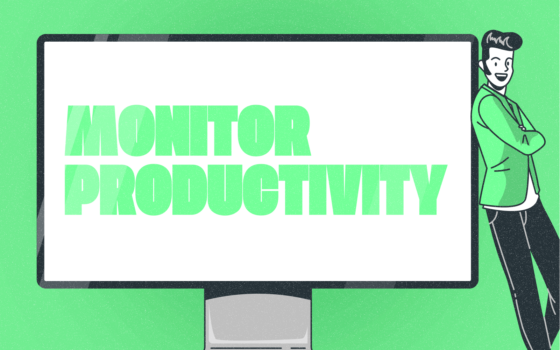Pay Date
Understanding Pay Date: A Comprehensive Guide for HR Professionals
In the realm of Human Resources and payroll management, few concepts are as fundamental and impactful as the pay date. This crucial element of the compensation process affects not only the financial well-being of employees but also the operational efficiency of organizations. In this comprehensive guide, we'll delve deep into the intricacies of pay dates, exploring their significance, various models, legal considerations, and best practices for HR professionals.
What is a Pay Date?
A pay date, also known as a payday or payroll date, refers to the specific day on which an employer distributes compensation to its employees for their work during a particular pay period. This date is typically predetermined and communicated to employees upon hiring, serving as a regular and predictable schedule for wage distribution.
Pay dates can vary widely depending on the organization's size, industry, and payroll practices. Some common pay date frequencies include:
- Weekly: Employees receive their wages every week, often on the same day (e.g., every Friday).
- Bi-weekly: Paychecks are distributed every two weeks, resulting in 26 pay periods per year.
- Semi-monthly: Employees are paid twice a month, usually on the 15th and the last day of each month, totaling 24 pay periods annually.
- Monthly: Wages are paid once a month, often on a specific date (e.g., the 1st or the last day of the month).
The Importance of Pay Dates in HR Management
Pay dates play a crucial role in various aspects of human resources management and organizational operations. Here are some key reasons why pay dates are so important:
1. Employee Satisfaction and Financial Planning
Consistent and reliable pay dates allow employees to plan their personal finances more effectively. When workers know exactly when they'll receive their wages, they can better manage their expenses, savings, and financial obligations. This predictability contributes significantly to employee satisfaction and reduces financial stress.
2. Legal Compliance
Many jurisdictions have specific laws and regulations governing the frequency and timeliness of wage payments. Adhering to established pay dates helps organizations comply with these legal requirements, avoiding potential fines, penalties, or legal disputes.
3. Payroll Processing Efficiency
Regular pay dates streamline payroll processing by creating a consistent schedule for HR and payroll teams. This regularity allows for better resource allocation and helps prevent errors that might occur with irregular or ad-hoc payment schedules.
4. Budgeting and Cash Flow Management
For organizations, especially small and medium-sized businesses, having set pay dates aids in better cash flow management and budgeting. It allows companies to anticipate and prepare for regular payroll expenses, ensuring sufficient funds are available when needed.
5. Timekeeping and Attendance Tracking
Pay dates often define the boundaries of pay periods, which in turn influence timekeeping and attendance tracking practices. Clear pay date schedules help ensure accurate recording and calculation of work hours, overtime, and other time-based compensation elements.
Types of Pay Date Schedules
While we briefly touched on some common pay date frequencies earlier, let's explore these and other options in more detail:
1. Weekly Pay Dates
Weekly pay dates are common in industries with hourly workers or those with fluctuating schedules, such as retail or construction. Advantages include more frequent cash flow for employees and easier calculation of overtime. However, this schedule can be more labor-intensive for payroll processing.
2. Bi-weekly Pay Dates
Bi-weekly pay dates are among the most popular in the United States. This schedule results in 26 pay periods per year, with two months having three paychecks instead of two. It strikes a balance between frequent pay for employees and manageable processing for employers.
3. Semi-monthly Pay Dates
Semi-monthly schedules, with payments on fixed dates like the 15th and last day of the month, offer consistency for salaried employees. However, they can be challenging for hourly workers due to varying numbers of workdays between pay periods.
4. Monthly Pay Dates
Monthly pay dates are less common but can be found in some industries or for certain employee types. While this schedule minimizes payroll processing frequency, it can be challenging for employees who need more frequent access to their earnings.
5. Custom or Flexible Pay Dates
Some organizations, particularly in the gig economy or with a large contingent workforce, may offer more flexible pay date options. This could include on-demand pay or more frequent distribution of earnings.
Legal Considerations Surrounding Pay Dates
HR professionals must be well-versed in the legal landscape governing pay dates. While specific requirements can vary by jurisdiction, here are some general legal considerations:
1. Frequency of Pay
Many states have laws dictating how often employees must be paid. For example, some states require weekly or bi-weekly payment for certain types of workers, while others allow monthly pay dates.
2. Timely Payment
Laws often specify how quickly employees must be paid after the end of a pay period. Failing to pay employees on time can result in penalties and legal action.
3. Pay Date Changes
If an employer needs to change pay dates, there are often legal requirements for notifying employees in advance and ensuring no pay is withheld during the transition.
4. Final Paycheck Regulations
Many jurisdictions have specific rules about when final paychecks must be issued to terminated employees, which may differ from regular pay date schedules.
5. Overtime and Holiday Pay
Pay date schedules must accommodate legal requirements for timely payment of overtime, holiday pay, and other special compensation types.
Best Practices for Managing Pay Dates
To ensure smooth payroll operations and maintain employee satisfaction, HR professionals should consider the following best practices:
1. Clearly Communicate Pay Dates
Provide new hires with a clear schedule of pay dates and include this information in employee handbooks or onboarding materials. Transparency about when and how often employees will be paid helps set clear expectations.
2. Implement Reliable Payroll Systems
Invest in robust payroll software that can handle your organization's pay date schedule efficiently. Automate as much of the process as possible to reduce errors and ensure timely payments.
3. Plan for Holidays and Weekends
Establish protocols for pay dates that fall on weekends or holidays. Many organizations opt to pay on the preceding business day in such cases.
4. Regular Audits and Compliance Checks
Conduct periodic audits of your pay date practices to ensure compliance with all applicable laws and regulations. Stay informed about any changes in labor laws that might affect your pay date policies.
5. Consider Employee Needs
While it's not always feasible to accommodate every preference, consider employee feedback when establishing or reviewing pay date schedules. Some workforces may benefit from more frequent pay dates, while others might prefer less frequent but larger paychecks.
6. Prepare for Exceptions
Develop procedures for handling exceptional situations, such as emergency pay advances or off-cycle payments. While these should be rare, having a process in place can help manage unexpected circumstances.
The Future of Pay Dates: Emerging Trends and Technologies
As the nature of work continues to evolve, so too does the concept of pay dates. Here are some emerging trends and technologies that may shape the future of pay date management:
1. On-Demand Pay
Also known as earned wage access, this trend allows employees to access their earned wages before the traditional pay date. While this can provide financial flexibility for workers, it also presents new challenges for payroll management and compliance.
2. Blockchain and Cryptocurrency Payroll
Some forward-thinking companies are exploring the use of blockchain technology and cryptocurrencies for payroll. This could potentially offer more secure and efficient payment methods, though regulatory hurdles remain.
3. AI and Machine Learning in Payroll
Artificial intelligence and machine learning algorithms are being integrated into payroll systems to predict cash flow needs, identify potential errors, and optimize pay date schedules.
4. Global Payroll Solutions
As remote work becomes more prevalent, there's an increasing need for payroll solutions that can handle multiple pay date schedules across different countries and currencies.
5. Personalized Pay Schedules
Some experts predict a future where employees might have more control over their pay dates, choosing schedules that best fit their individual financial needs.
Conclusion: The Ongoing Importance of Pay Date Management
Pay dates may seem like a simple concept on the surface, but as we've explored, they are a critical component of effective HR and payroll management. From ensuring legal compliance to boosting employee satisfaction and optimizing organizational cash flow, the importance of well-managed pay dates cannot be overstated.
As the workplace continues to evolve, HR professionals must stay informed about best practices, legal requirements, and emerging trends in pay date management. By doing so, they can ensure that their organizations maintain efficient, compliant, and employee-friendly payroll practices that contribute to overall organizational success.
Whether you're dealing with traditional weekly paychecks or exploring cutting-edge on-demand pay solutions, remember that at the heart of every pay date is an employee counting on timely and accurate compensation for their work. By prioritizing effective pay date management, HR professionals play a crucial role in fostering a positive work environment and supporting the financial well-being of their workforce.


